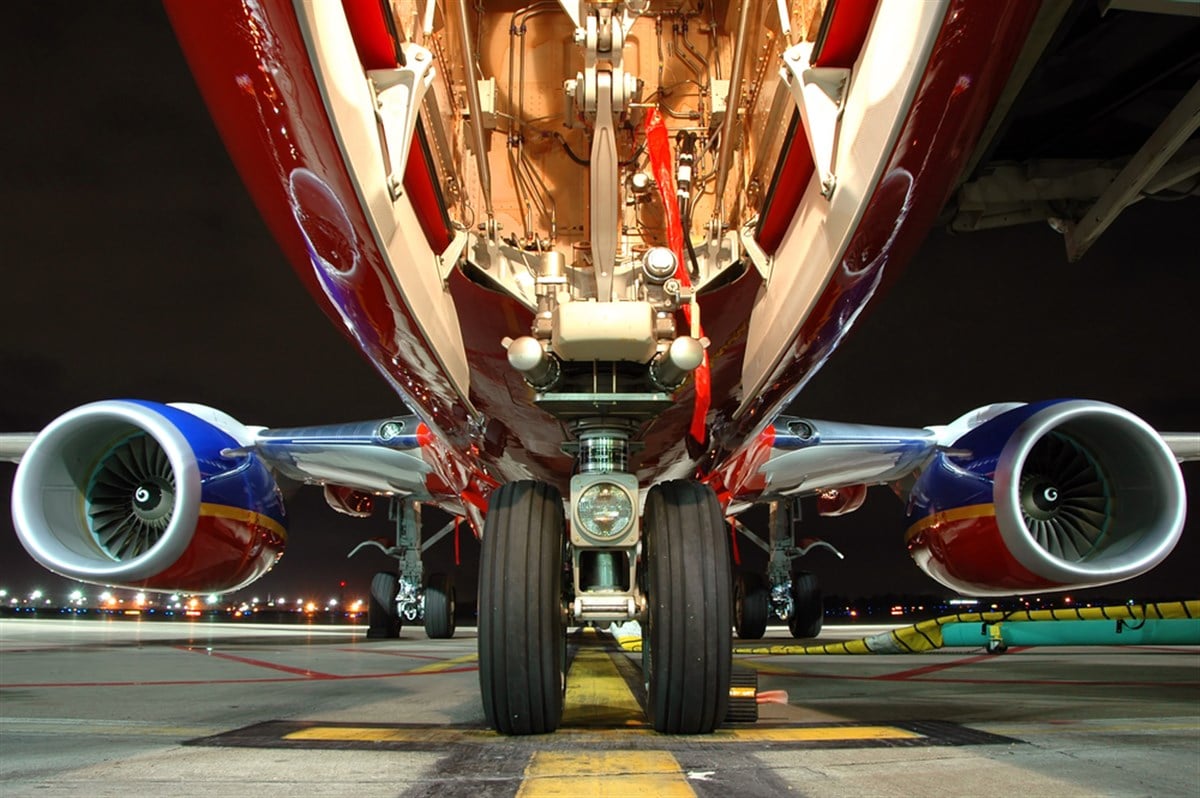
Shares of The Boeing Co. (NYSE: BA) gapped down 8.50% at the open on January 8, after a panel from an Alaska Air Group Inc. (NYSE: ALK) fell out mid-flight.
The plane made an emergency landing, and the Federal Aviation Administration immediately grounded all Boeing 737 9 Max aircraft, the type involved in the incident.
Boeing wasn’t the only stock to suffer as a result. Spirit AeroSystems Holdings Inc. (NYSE: SPR) stock gapped down 14.09% at the open on January 8. The stock was making up some lost ground as the session progressed, but was not in a position to easily close the gap.
Spirit AeroSystems is a small company that manufactures fuselage, propulsion and wing systems for commercial and military aircraft. Spirit made the part that blew out of the Alaska plane.
Boeing supplier has struggled, missing EPS views
According to reports, Spirit makes the entire fuselage for all Boeing jets. Spirit has struggled since air travel was curtailed in 2020 due to the pandemic, with the company reporting losses each year since then. Analysts expect another loss when the company reports 2023 results on January 23.
Spirit AeroSystems earnings data show the company repeatedly missing analysts’ earnings views since early 2021. Spirit has been struggling with production delays due to a variety of factors, including prior 737 Max groundings, supply chain disruptions and production delays during the pandemic.
While Spirit made and initiated the installation process for the failed panel, Boeing was involved in completing the job.
The panel was recovered from a backyard in Oregon.
Alaska shares opened lower, but rallied
So far, there’s been no suggestion that Alaska Air had any responsibility for the panel’s failure, although it’s early in the investigation.
Alaska Air Group gapped down at the open on January 8. Shares rallied significantly as the session progressed, but by late morning had not yet crossed into positive territory.
In addition to Alaska Air, the order affects United Airlines Holdings Inc. (NASDAQ: UAL), which operates 79 of the Max planes. It said on January 7 that it was in the process of inspecting the planes, and about 33 inspections were already completed.
As a result of the groundings, United canceled 230 flights on January 7, about 8% of its planned departures. United stock was trading 0.94% higher early in the January 8 session.
Panama's Copa airline also affected
Panama’s Copa Holdings S.A. (NYSE: CPA) grounded 21 Max aircraft, telling Reuters that it expected to have the planes inspected and back in service within about 24 hours. The airline added that it expected some flight cancellations as a result.
The airline reportedly had 26 737 Max 9 planes at the end of September.
Copa stock was showing some price swings on January 8, but that’s not atypical; Copa is slightly more volatile than the broader market, with a beta of 1.14. It’s also a relatively small company, with a market capitalization of $4.30 billion, which can contribute to volatility.
Southwest Airlines Co. (NYSE: LUV), known for operating only Boeing 737 aircraft, does not have any of the Max 9 planes in its fleet. Southwest stock was trading 0.22% higher on January 8.
Airline stocks trading higher
Airline stocks as a whole were trading higher with the broader market on January 8. American Airlines Group Inc. (NASDAQ: AAL) and Delta Air Lines Inc. (NYSE: DAL) were the top performers in the Industrial Select Sector SPDR Fund (NYSEARCA: XLI)
Boeing, however, is another story.
This is the third incident involving the company’s 737 Max aircraft, although no lives were lost this time. In October 2018, a Boeing 737 Max 8 crashed into the Java Sea, killing all 189 people onboard.
In March 2019, an Ethiopian Airlines 737 Max crashed, killing 157 people.
Reminder of previous 737 Max grounding
Following the Ethiopian Air crash, Boeing grounded all its 737 MAX planes worldwide. Concerns about the aircraft's safety resulted in a global suspension that revealed issues with the planes’ Maneuvering Characteristics Augmentation System. The planes were grounded for two years.
As a developing story, all the details regarding the Alaska Air incident aren’t in yet. However, the FAA revealed at a news conference that data from the flight recorder was only preserved for two hours, the current regulatory requirement, meaning it had already been recorded over by the time investigators received it.
As a result, the FAA is asking Congress to require U.S. airlines to preserve flight data for 25 hours, which would be in line with European regulations.
